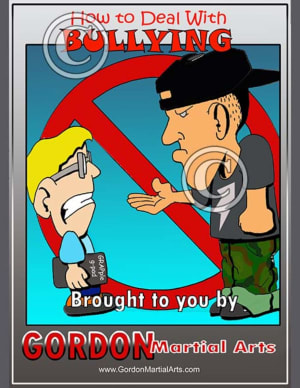
(Originally published in 2013 in Crestview Bulletin) We’ve all dealt with bullying. Every single one of us. For most of us, it was likely at a time when we were younger and done by a larger and/or older kid. There are many ways people are bullied and it’s not always easy to define. The typical bullying attacks are:
- Physical such as pushing, kicking, hitting, etc
- Verbal such as persistent teasing, constant name calling
- Emotional such as tormenting, spreading rumors, exclusion, and humiliation kids
What can a child do?
- Avoid the bully by going a different route to class or home, use a different bathroom, and generally just avoid areas you know where the bully will be.
- Use the buddy system and always stick together. Bullies tend to look for loners.
- Don’t show emotion and try to “hold the anger.” Bullies will feed off the emotion. Firmly and clearly tell the bully to stop, then walk away.
- Ignore the bully by walking away after clearly telling the bully to stop. Act as if you don’t care and eventually the bully will seek someone else they can get a rise out from.
- Tell an adult or a teacher. No one wants to be a snitch but the adult should be able to stop the bullying.
- Talk about it with your parents, counselor, preacher, or friends. It’ll help so that you don’t feel so alone and they may have some helpful information.
- Remove the incentives. What motivates the bully to pick on you? Do they want your cell phone? Leave it at home or in your locker. Do they want your money? Leave it at home. Maybe they just want to embarrass you so avoid them and take away the opportunities.
What can parents do?
- Communicate with your child and find out what how their day went. Ask open ended questions. “Did you have a good day?” gets a “yes” answer. Instead, ask “What happened today?” Kids may baulk and not want to talk but over time you can build a rapport with your children if you haven’t already.
- Know the signs of bullying such as them being withdrawn or suddenly not wanting to go somewhere they used to enjoy. If you think your child is being bullied, ask them directly.
- Talk with teacher or principal to see if they have seen anything unusual. No one likes “helicopter parents” but I’d rather deal with an over protective parent than one that is not concerned with their child.
- Practice how to deal with bullying and this can be done with talking it out or role playing.
- Get your child involved in activities and help them find friends. Bullies thrive off loners. Get your child involved in sports, band, gymnastics, dance, (*ahem*) martial arts, church, boy scouts, girl scouts, etc.
- Enroll them in martial arts and watch them get more confidence while making new friends and learning some practical self-defense. Martial arts isn’t a sport like football, baseball, soccer or other team sports. It’s more of an individual sport. However, it’s not JUST an individual sport since it helps to instill confidence, integrity, self-control, etc.
Now I realize the last item comes across as self-serving. And yes, I am totally sold on martial arts, after all, I enjoyed martial arts so much I made it a staple of my life. But martial arts are a lot more than kick/punch we see on TV and certainly nothing like we see with “Cage Fighting.” A good martial art school will teach self-defense while helping the parent in teaching the child to have more discipline, confidence, integrity, self-control, and other values that most of us teach our children. There’s only so much space I can write about this and it can be an extensive topic. A search engine query on “bullying” pulled up 76,400,000 results and many books have been written on the topic.

